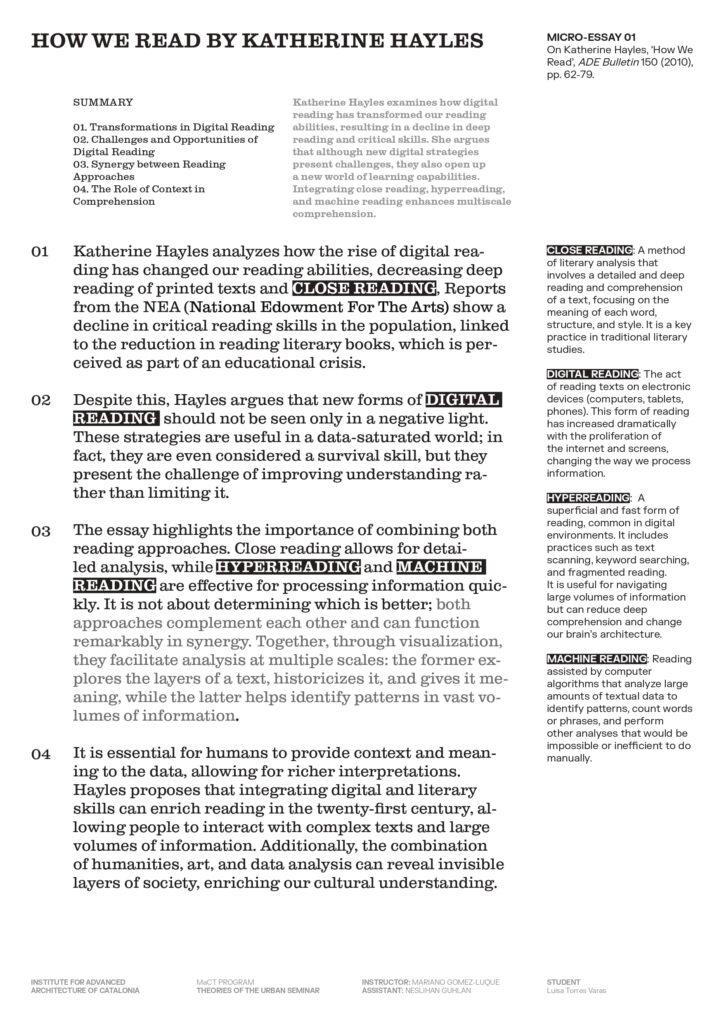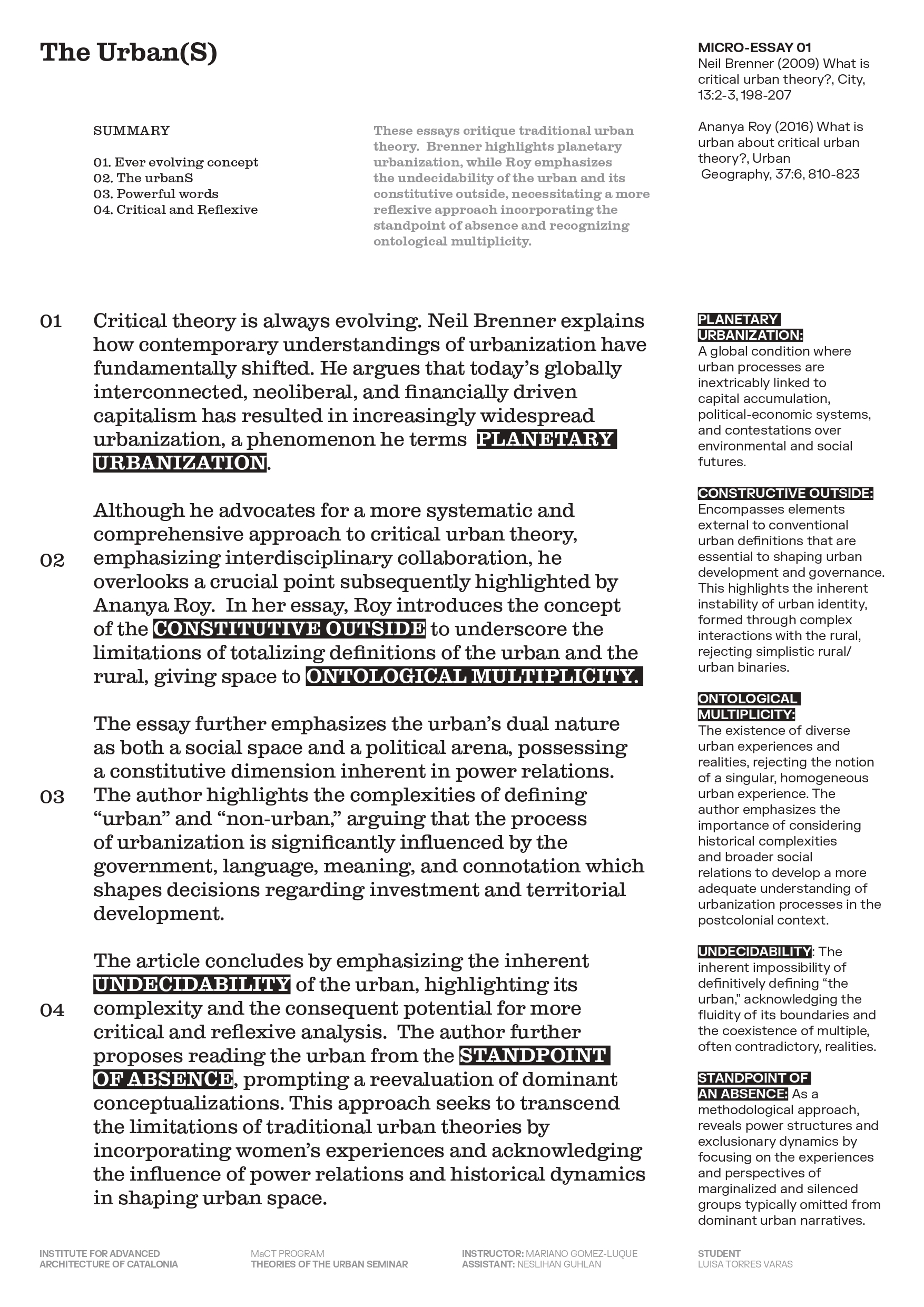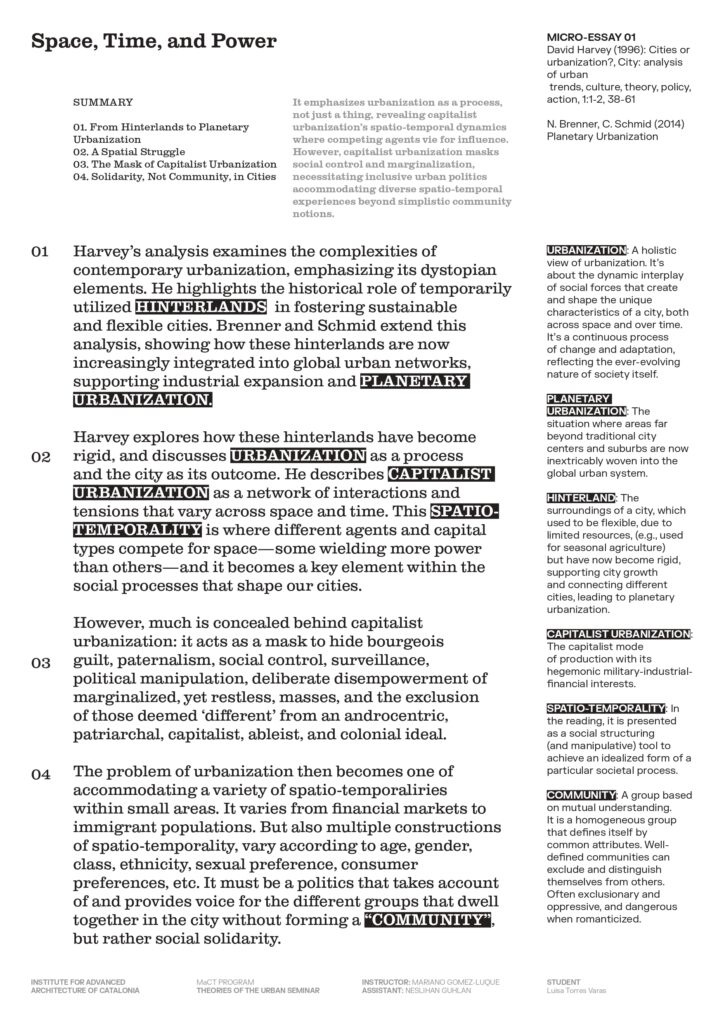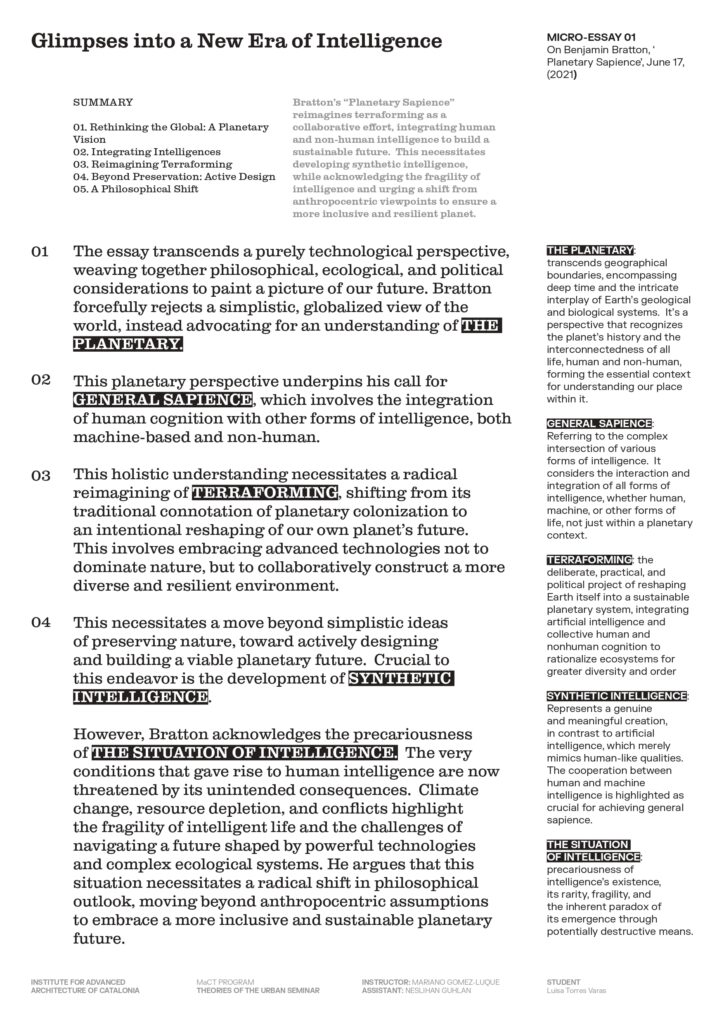Abstract: This essay explores the intertwined transformations of
digital literacy, urbanization, and intelligence in contemporary
society. It examines how technological advancements, critical
urban theory, and the concept of “planetary sapience” are shaping
a complex reality demanding holistic and inclusive approaches
into a sustainable planetary system.
Contemporary society is undergoing profound transformations driven by the interplay of digital technologies, urbanization and its social dynamics, and evolving conceptions of intelligence. Digital literacy has shifted from in-depth CLOSE READING to rapid HYPERREADING and MACHINE READING, demanding a new literacy that blends the three types of reading allowing richer interpretations and analysis at multiple scales. The combination of humanities, art, and data analysis can reveal invisible layers of society, enriching our cultural understanding.
This shift in information consumption mirrors broader changes in urban environments. The concept of PLANETARY URBANIZATION highlights the increasingly interconnected global urban network, expanding far beyond traditional city centers and incorporating previously distinct HINTERLANDS. Capitalist urbanization, however, often masks underlying social control and marginalization. David Harvey’s analysis reveals how this process can exacerbate existing inequalities, leading to the creation of spaces of exclusion and fragmentation. The SPATIO TEMPORALITY of urban development, characterized by competition between different agents and capital types, shapes the experiences of marginalized communities and contributes to a widening gap between those with power and those without. The “mask” of CAPITALIST URBANIZATION hides underlying power dynamics, highlighting the importance of understanding the social and political forces at play.
Recognizing the limitations of traditional urban theory is crucial. Ananya Roy’s work emphasizes the UNDECIDABILITY of defining urban space, underscoring the complexities of the relationship between urban and rural areas. This CONSTITUTIVE OUTSIDE challenges simplistic binaries, emphasizing the fluidity and interconnectedness of urban and rural environments. The concept of ONTOLOGICAL MULTIPLICITY further highlights the diverse experiences and realities within urban areas, rejecting a singular, homogeneous view. Understanding these complexities requires a STANDPOINT OF ABSENCE, acknowledging the perspectives and experiences of marginalized groups often excluded from dominant narratives. This approach emphasizes social solidarity over simplistic notions of community, recognizing that true inclusivity demands addressing the contradictions and power imbalances inherent in urban development.
Finally, the discussion extends to a broader consideration of intelligence and its future. Benjamin Bratton’s concept of general sapience proposes a radical shift, moving beyond anthropocentric views to embrace the integration of human, machine and other living creature´s intelligence in building a sustainable future. TERRAFORMING, in this context, transcends its traditional connotation of planetary colonization, becoming a collaborative effort to reshape ecosystems for greater diversity and resilience. This requires the development of synthetic intelligence, genuine and meaningful forms of artificial intelligence that works collaboratively with human intellect to address global challenges. This vision necessitates a move beyond simplistic notions of nature preservation towards active design and collaboration, recognizing the precariousness of intelligence and the inherent paradox of its emergence through potentially destructive means. The present is a reflection of the violence from which it emerged and against which we struggles to survive. If a different future is wanted, a new base for this change needs to be created. A new formula is needed.
In conclusion, this analysis suggests that understanding the intertwined transformations of digital literacy, urban development, and evolving conceptions of intelligence requires a holistic and interdisciplinary approach. The future demands a conscious shift from outdated models towards a more equitable and sustainable vision, recognizing and addressing the inherent complexities and contradictions of our increasingly interconnected world. This requires critical engagement with power dynamics, fostering inclusive and diverse collaborations, and embracing the potential of different forms of intelligence to build a caring, resilient ordered and just future.





